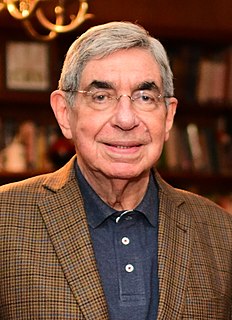A Quote by Mahatma Gandhi
Not to believe in the possibility of permanent peace is to disbelieve in the Godliness of human nature.
Quote Topics
Related Quotes
To regard such a positive mental science [psychology] as rising above the sphere of history, and establishing the permanent and unchanging laws of human nature, is therefore possible only to a person who mistakes the transient conditions of a certain historical age for the permanent conditions of human life.
I believe it is quite possible for us to obtain an outer peace at the present time. Historically speaking, when human beings are faced with the choice between destruction and change, they are apt to choose change, and it's about the only thing that will make them choose change. So we have the possibility at the present time to take a different direction in the world - the possibility exists!
It is scripture alone, not conservative Evangelical tradition or any other human authority, that must function as the normative authority for the definition of what we should believe. The authority of the scripture means that all the words in scripture are God's words in such a way that to disbelieve or disobey any word of scripture is to disbelieve or disobey God.
Peace does not rest in the charters and covenants alone. It lies in the hearts and minds of all people. So let us not rest all our hopes on parchment and on paper, let us strive to build peace, a desire for peace, a willingness to work for peace in the hearts and minds of all of our people. I believe that we can. I believe the problems of human destiny are not beyond the reach of human beings.
I have to believe in the possibility of peace, because the alternative is to accept the inevitability of continual war, and of always living in fear. It doesn't have to be that way. However, there are no simple solutions, and I am not the possessor of a magic formula for peace. All I can say is that for peace to succeed it requires perseverance, patience, humility, compromise, and commitment, from all parties.
I believe that the basic nature of human beings is gentle and compassionate. It is therefore in our own interest to encourage that nature, to make it live within us, to leave room for it to develop. If on the contrary we use violence, it is as if we voluntarily obstruct the positive side of human nature and prevent its evolution.
With reason, then, the common opinion of mankind, little affected by the few dissentients who have contended for the opposite view, has found in the careful study of nature, and in the laws of nature, the foundations of the division of property, and the practice of all ages has consecrated the principle of private ownership, as being pre-eminently in conformity with human nature, and as conducing in the most unmistakable manner to the peace and tranquility of human existence.
Idealists are people who believe in the potential of human nature for transformation. . . . The most essential attribute of human nature is its mutability and freedom from instinct . . . it is always within our power to change our nature. So it is actually the idealists who are on the mark and the realists who are off base.









































